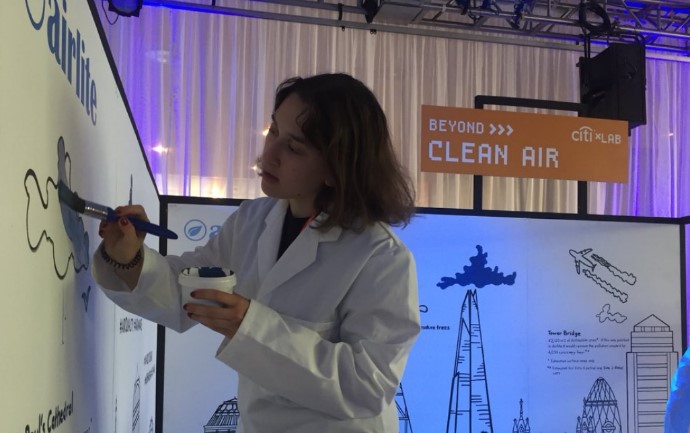Beyond TEDxLondon: Technologies bringing life to ideas
Behind every TEDx talk, there is a story – and at this year’s flagship TEDxLondon event on 1st July technology played a starring role.
At the event, 20 speakers – including memory scientists, activists, entrepreneurs, musicians, and many other change makers – shared their ideas with 2,000 audience members with the hope that they can challenge, influence and change the way we see the world, and ourselves.
Technology is part of the solution
From combatting workplace harassment using AI to memory science coding in poetry being termed the “new avant garde,” the TEDxLondon event was abuzz with pioneering digital innovations and ideas, and a timely reminder for our policy makers and business leaders on why it is so important to upskill our younger population and close the looming digital skills gap.
As Andy Coxall, Chief Executive of the Common Purpose Student Experiences said in his talk, “we can learn a lot from young leaders and their approach to life,” – which is all about collaboration, inclusiveness, adaptability, accessibility, and trustworthiness.
Technology has the potential to foster all of these – we have seen collaborative technology solutions boosting business performance, inclusive technology solutions solving diversity problems, AI-powered doctors helping patients in remote areas of the world, and immersive virtual reality headsets helping patients suffering from dementia and other degenerative diseases.
When done right, technology can solve our greatest healthcare, business, social, humanitarian, as well as invisible challenges. After all who would have predicted that in 2017 a hashtag would become a rallying force against sexual harassment, and change the world?
Technology that speaks for itself
Amongst the speakers and talks at the event, the technology hub #CitixLab gave visitors a glimpse into smart technologies, from the Airlite paint that turns walls into natural air purifiers to Ikea’s solar-powered Better Shelter tents that last six times longer than a typical emergency tent transforming the lives of thousands of refugees around the world.

Also featuring at the CitixLab was the Woebot, the world’s first mental health chatbot developed to make therapy accessible and tackle the global mental health care epidemic (it’s available for download on Facebook Messenger and the iTunes App Store); Olio, a food sharing app developed to tackle food wastage that lets people post pictures of unwanted food items and connects them to nearby users who might want something; and the Irrational Agency’s brain scanning headsets that allowed visitors at TEDxLondon to see inside their brain and identify hidden unconscious biases.
TEDx disruptors challenging old narratives
The TEDxLondon flagship event had a central theme: how do you make sense of life in a nonsensical world where fake news and fake life images are boxing us in labels, silos, and divisions?
How do people collaborate and come together as a community when the forces of de-globalisation are challenging unity?
How do people rise when faced with so many disruptions?
According to many of the speakers at this year’s event, there can only be one way out – by embracing the disruptions.
Looking around us, we are already seeing the fruits of disruption – AI and robots transforming industries; the anywhere, anytime skills style of employment helping businesses optimise their employees productivity and efficiency; and the fragmentation of the EU giving rise to geographically alternative centres of excellence.
Through the voices of the TEDxLondon speakers we caught a glimpse of the challenges people face from different perspectives but we also realised that progress and solutions begin in the simplest of ways – by starting a conversation.
Maria Khan, Technology
Find Out More
-
Platinum CMS Award
March 13, 2024
-
Changing Communications Tack at Mobile World Congress
February 21, 2024


